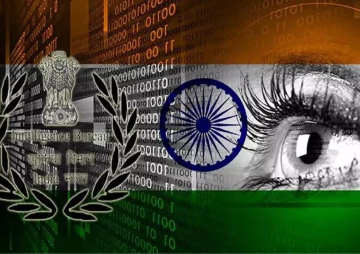"
Prime Minister Dr. Manmohan Singh met Pakistan Prime Minister Nawaz Sharif a day after addressing the United Nations General Assembly in New York on September 28 and the two discussed all important issues, including Kashmir, sharing of river waters, Siachen, Sir Creek and Baluchistan. Earlier, Prime Minister Manmohan Singh also had a meeting with US President Obama.
During his meeting with President Obama, Prime Minister Manmohan Singh explained to him how Pakistan had become the epicenter of international terrorism. The recent attack by Pakistan-trained militants on a police station and an Army post in Kathua district of J&K was also mentioned. President Obama is also fully aware of the deadly extent of the activities of jihadi outfits like Lashkar-e-Taiba in India. USA had even announced a reward of $10 million on the head Hafiz Saeed, the chief of LeT and its parallel outfit Jamat-ud-Dawa and had described him as an international terrorist. In his address at the UN General Assembly also the Prime Minister referred to the terrorist organisations backed by Al-Qaida from Pakistan.
On his part Prime Minister Nawaz Sharif spoke of issues such as Kashmir, the need to ascertain the opinion of the people of Kashmir in deciding on its future and status. He also referred to issues like Siachen and Baluchistan, where, Pakistan had alleged that Indian agencies were instigating a revolt.
During their interaction in New York, Sharif asserted that there was no evidence against LeT regarding its role in the November, 2008 attacks in Mumbai. He also insisted that Jamat-ud-Dawa, the parallel organisation founded by Hafiz Saeed was only interested in extending various forms of help to the rural people of Pakistan and was not known to have indulged in any terrorist activities. It was obvious that Sharif was only trying to play to the gallery, particularly the militant and religious fundamentalists in Pakistan.
The internal situation in Pakistan is in chaos and the state of affairs is known to India as well as USA and other western countries.
An analyst has commented in the News Week of Pakistan that Karachi, Peshawar and Quetta are known to be the bases of terrorist groups and even Lahore has joined the ranks as a terrorist base. This analyst also pointed out that the well-known universities in Pakistan had also become bases of terrorist elements.
However, Pakistan's newly elected Prime Minister seems to be overlooking the fact that he is, in fact, playing with fire by trying to downplay the existence of extremist elements in his country. The bombing of an ancient Church in Quetta on September 22, in which 85 persons were killed and over 100 injured was a gruesome reminder to the Nawaz Sharif government thatreligious fundamentalist elements like Taliban should not be ignored.
On October 2, 2013 afternoon Lt. Gen. Gurmeet Singh of Srinagar- based 15 Corps briefed the media about the ongoing encounter in the Keran sector of Kupwara district of the LoC. The Corps Commander disclosed that the encounter was on for the past 10 days and as many as 35-40 militants had infiltrated into the forest of Keran sector of Kupwara district. In the flushing out operation carried out by the Army, 15 intruders had been killed and the operation continued for apprehending the remaining militants. Apart from the fact that it was a brazen attempt on the part of the Pakistani Army to initiate the encounter apparently for the purpose of infiltrating militants into Kashmir it exposed the charade which Pakistan Prime Minister tried to maintain during his meeting with Dr. Manmohan Singh.
However, the fact that this encounter has been going on for the past nine days involving 35-40 militants who are suspected to be from Pakistan special troops exposed the design and undependability of Pakistan Army.
It also proves once again that Sharif has not been able to exercise complete control over General Kayani and ISI so far. It is, therefore, futile to hope for peace along the LoC and good conduct on the part of Pakistan Army and the ISI.
With Sharif sticking to inanities like his assertion that Pakistan itself was a victim of terrorism and that it was not helping any jihadi groups, the meeting produced no worthwhile results. In making such assertions, Sharif was only deluding himself even more than he tried to explain Pakistan's position.
When asked by a media person that since this was his first interaction with Nawaz Sharif and whether he got the impression of him being master of his own destiny or he was being held back by the ISI and the Pakistan Army, Manmohan Singh could only reply that he sincerely hoped that Nawaz Sharif would succeed in carrying out his mission. There can't be any further comment on the possible outcome of the meeting between the two Prime Ministers.
At the meeting between Manmohan Singh and Nawaz Sharif, it was agreed that the incidents across the LoC would, henceforth, be taken up by the DGMOs of both the countries who would try to resolve these. This seems to be the only worthwhile outcome of the meeting of the two prime ministers, though it remains to be seen how effective this arrangement would be. Sharif also assured the Indian Prime Minister that the most favoured nation protocol would be extended to India in order to facilitate trade between the two countries.
As for the crucial question of progress to bring to justice to those involved in Mumbai attacks in 2008, Pakistan Foreign Secretary Jalil Abbas Jilani said a Judicial Commission had recently visited India, with the authorisation to cross-examine and its report was awaited.
Keeping in view, the state of affairs, nothing more could have been expected from the meeting of the two prime ministers.
On the other hand, the interaction between Dr. Manmohan Singh and President Obama was quite productive. India has been a strategic partner of USA in defence matters. India has now agreed to participate in joint exercises with the US fleet in the Asia Pacific Region.
It is also reported that the purchase of a nuclear reactor for generating power from one of the private companies in the US has been agreed upon, though the details are still not available.
In the defence sector USA has handed over a list of 10 defence technologies for transfer to India, thereby bringing it into the small group of close allies with whom America shares such sensitive details. This marks a definite step forward in the Indo-US defence ties and strategic partnership.
(The writer is a former Intelligence Bureau chief and Governor of Sikkim, West Bengal and Uttar Pradesh. Currently, he is an Advisor to ORF)
Courtesy : The Tribune, October 8, 2013
"
The views expressed above belong to the author(s). ORF research and analyses now available on Telegram! Click here to access our curated content — blogs, longforms and interviews.




 PREV
PREV

